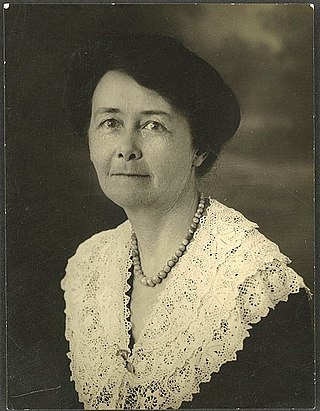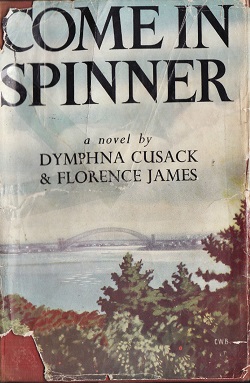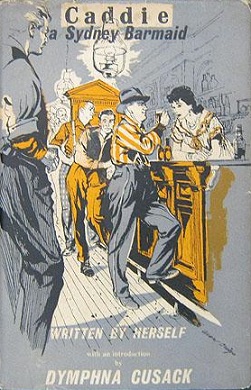Related Research Articles

Stella Maria Sarah Miles Franklin, known as Miles Franklin, was an Australian writer and feminist who is best known for her novel My Brilliant Career, published by Blackwoods of Edinburgh in 1901. While she wrote throughout her life, her other major literary success, All That Swagger, was not published until 1936.

Spinster is a term referring to an unmarried woman who is older than what is perceived as the prime age range during which women usually marry. It can also indicate that a woman is considered unlikely to ever marry. The term originally denoted a woman whose occupation was to spin. A synonymous term is old maid. The closest equivalent term for males is "bachelor" or "confirmed bachelor", but this generally does not carry the same connotations in reference to age and perceived desirability in marriage.

Caddie is an Australian film biopic directed by Donald Crombie and produced by Anthony Buckley. Released on 1 April 1976, it is representative of the Australian film renaissance which occurred during that decade. Set mainly in Sydney during the 1920s and 1930s, including the Great Depression, it portrays the life of a young middle class woman struggling to raise two children after her marriage breaks up. Based on Caddie, the Story of a Barmaid, a partly fictitious autobiography of Catherine Beatrice "Caddie" Edmonds, it made Helen Morse a local star and earned Jacki Weaver and Melissa Jaffer each an Australian Film Institute Award.

Ellen Dymphna Cusack AM was an Australian writer and playwright.

Come In Spinner is an Australian novel by Dymphna Cusack and Florence James, originally published in 1951 and set in Sydney at the end of the Second World War.

Caddie, A Sydney Barmaid is the fictionally embellished autobiography of Catherine Beatrice (Caddie) Edmonds, who worked as a barmaid in Sydney during the Great Depression. Published anonymously in 1953 under Edmonds' nickname, which was coined by a lover who likened her to "the sleek body and class of his Cadillac motorcar", Caddie attracted wide critical acclaim upon its original publication in London, and became a bestseller when it was adapted into a feature film in 1976, one year after International Women's Year.
Florence Gertrude James was an Australian writer and literary agent, born in New Zealand.

Passage Home is a 1955 British drama film directed by Roy Ward Baker and starring Anthony Steel, Peter Finch and Diane Cilento. The screenplay was by William Fairchild based on the 1952 novel of the same name by Richard Armstrong.
Debra Adelaide is an Australian novelist, writer and academic. She teaches creative writing at the University of Technology Sydney.
Red Sky at Morning is a 1944 Australian melodrama set during the 19th century based on a play by Dymphna Cusack. It features an early screen performance by Peter Finch, who plays a convict who falls in love with the wife of a sea captain.

You Can't See 'Round Corners is a 1947 novel by Australian author Jon Cleary. It was his first published novel.

Sara Dane is a 1982 Australian television miniseries about a woman transported from England to Australia for a crime she did not commit.
This article presents a list of the historical events and publications of Australian literature during 1955.
Pioneers on Parade (1939) is a novel by Australian writers Miles Franklin and Dymphna Cusack.
Say No to Death (1951) is a novel by Australian writer Dymphna Cusack. It was originally published in Australia by Heinemann, and later in the US by William Morrow under the title The Sun in My Hands.
The Sun is Not Enough (1967) is a novel by Australian writer Dymphna Cusack.
This article presents a list of the historical events and publications of Australian literature during 1981.
Stand Still Time is a 1946 Australian play by Dymphna Cusack. It was adapted for radio and British television.
The Playwrights' Advisory Board was an Australian organisation established in 1938 to assist the cause of Australian playwriting. It was established by Leslie Rees, Rex Rienits and Doris Fitton. Its functions included negotiating productions with theatres, acting as an intermediary in the nomination and collection of royalties, advising theatres and playwrights on scripts, and holding script competitions. Members of the board included names such as Dymphna Cusack and Sumner Locke Elliott.
Red Sky at Morning is a 1935 Australian stage play by Dymphna Cusack. The play helped launch Cusack's writing career and was filmed in 1943.